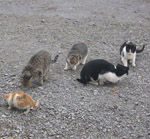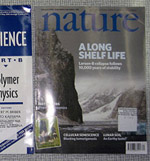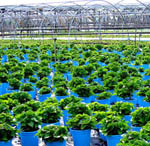Google ecology: using algorithms to predict the effects of species extinction
 Technology-GIS
Technology-GIS In a new study published in the open source journal Computational Biology, researchers apply Google's Page Rank algorithm to predict the consequences of species extinction on ecosystems. Given the complexity of food web networks, it can be very challenging to understand to what extent a single extinction will cascade in further species loss.
Using the PageRank method, the researchers identify the set of species which are most critical for maintaining ecosystem functioning. PageRank assigns importance to web-pages according to the rule "a page is important if important pages point to it." The researchers identify the species of maximum importance by using PageRank to determine which extinctions lead to the fastest ecosystem collapse.
According to researchers' summary:
"In this work we want to determine which species are critical as they support many other species. The fact that species are not independent, however, makes the problem difficult to solve. Moreover, the number of possible “importance'” rankings for species is too high to allow a solution by enumeration. Here we take a “reverse engineering” approach: we study how we can make biodiversity collapse in the most efficient way in order to investigate which species cause the most damage if removed. We show that adapting the algorithm Google uses for ranking web pages always solves this seemingly intractable problem, finding the most efficient route to collapse. The algorithm works in this sense better than all the others previously proposed and lays the foundation for a complete analysis of extinction risk in ecosystems."
The full study can be accessed online for free at the link below:
| Source: | Computational Biology |
| Title: | Googling food webs: Can an eigenvector measure species' importance for coextinctions? |
| Authors: | a) Stefano Allesina and b) Mercedes Pascual |
|
a) National Center for Ecological Analysis and Synthesis, Santa Barbara, California |




Reader Comments